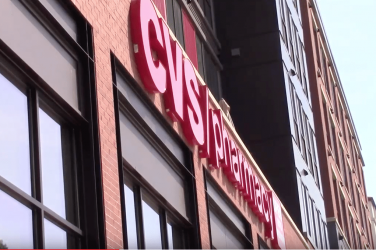Student misconduct and discipline measures remain upfront concerns for the Clarke County School District.
Why It’s Newsworthy: The CCSD is trying new methods, through restorative practices to keep students out of trouble. Those new methods could make Athens-area schools safer, but have come with varying results.
What They’re Doing
“To address discipline, there’s many different approaches,” said Dawn Meyers, associate superintendent of policy and school support services at the CCSD. “The best way to address it is through having a positive school climate, having good classroom management and having good school-and-district-wide expectations for student behavior.”
The district has started rolling out solutions in an attempt to solve student misconduct issues, one of which is to attempt to better accommodate students from what CCSD superintendent Desmond Means called “historically marginalized groups” at a school board meeting.
One of the ways the district is fostering a “more positive climate” is by the use of a program called restorative justice, which focuses on repairing a damaged relationship – say, between a group of students, or a teacher and student – rather than cutting straight to suspensions and expulsions.
There were 17 incidents of 11-or-more day suspensions across the district last year and, per the notes from a Parental Advisory Board (PAB) meeting, the CCSD’s safety audit results found that the district needs more resource officers (SROs) and security personnel in its schools. When at capacity, the Clarke County Police Department places one SRO in each middle-and-high school within the district, according to ACCPD public information officer Geoffrey Gilland.
As of now, Clarke Middle School is the only school fully implementing restorative practices. That’s according to John Lash, executive director of the Georgia Conflict Center. Said Lash:
The other day (at Clarke Middle), some students had a conflict and were like, ‘hey, when are we having our (conflict resolution) circle?’ They were being proactive and trying to figure out what to do. Which is what you want.”
According to the district’s 2017-2018 student discipline results, the district enrollment was just over 14,600 students. The district had 7,664 student behavior incidents in 2017-2018. 57 students were expelled from their respective schools.
According to notes from a September 10, 2018 CCSD Parent Advisory Board meeting, Clarke Middle is going as far as renaming in-school suspensions (ISS) to “refocus.”
The Drawbacks
These restorative practices, though come with a catch.
It’s the situations like the example at Clarke Middle – students eagerly awaiting their conflict resolution circle and using it as a means to potentially avoid punishment – that critics of restorative practices cite. Max Eden, a senior fellow at the Manhattan Institute, is one of them.
“You want students to take an ownership of their school’s moral culture,” Eden said. “Unfortunately, students who are more prone to be disruptive are the least likely to be influenced by these restorative practices.
“There are always students who try to push the envelope. When the envelope gets pulled back further and further, you can expect students, who are inclined to make trouble, to find what the limits are.”
The Reasoning
The idea behind restorative justice, Meyers said, is that instead of just punishing misbehavior, there exists an opportunity to repair the harm that was caused, by looking at the incident and determining what can be done in the future to prevent any more incidents.
An excerpt from the CCSD’s 2018-2019 Code of Conduct reads: “The use of Out-of-School Suspensions, Expulsion, and Referrals to Alternative Education Settings should be as limited as possible.”
Simply put, the practice emphasizes correction and counseling over punishment. But there’s no concrete data for restorative justice, because statistics on student misconduct vary depending on the source.
“We’re not going to punish our way out of students’ misbehavior, I really believe that,” Meyers said. “I think we need consequences at times, but we also need a lot of support.”
Joshua Mixon is a senior majoring in journalism in the Grady College of Journalism and Mass Communication at the University of Georgia.







